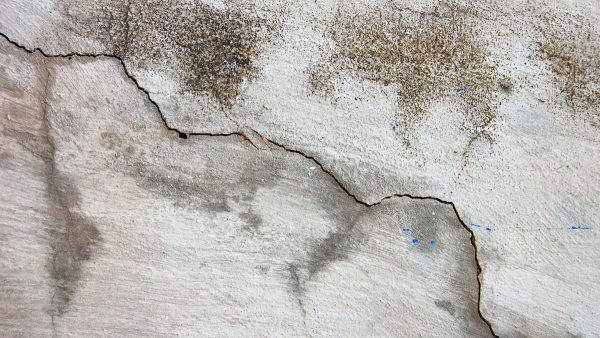Three reasons why your masonry cracks

Was that crack there before?
When you walk outside your building, you’re struck by a long, narrow crack working its way down between the bricks or stone on the facade. Is it new? You don’t recall it being there before.
Cracks are part of life for masonry, especially in an area like the Great Plains where weather and unstable soil conditions can create a potent building-destroying combination. Cracks aren’t always a sign of deeper structural problems, but they can be. What causes them? And can you fix it?
Settling foundation
One of the chief reasons for masonry cracks is the movement of a building over time. This creates cracks horizontally, usually on the corners of a building. These cracks will move up the outside of the building in a stairstep pattern as the building continues to move.
Window and garage door frames can have cracking around them too, but usually this isn’t because of settlement of the building—it’s settlement due to the wrong size of lintel. Thankfully most builders are good enough to avoid this when the building is erected, but it’s still a possibility.
Once you see cracks of this type, you need to keep a very watchful eye in the future. The building can continue to shift, which can create more cracks or worsen the existing ones. This can cause structural issues if the movement is bad enough.
Environmental factors
Temperature fluctuation affects all parts of a building, but masonry is particularly susceptible. Water infiltration is one of the biggest causes of cracks. Water will get into even the tiniest of openings, and over time it will leach out, crack, freeze, expand, and break apart even the best mortar.
Other environmental factors can break down mortar in different ways, causing spalling—the chipping and flaking of the outer surface. Wind, water, precipitation and pollution all take their toll over time.
Bowed walls
If you see a bulge or a bow in a wall, that means the structural integrity of the wall has been compromised. If you see it cracking, that means it’s dire. When you see bowed walls, call someone who does masonry repair immediately. If that section gives way, you’ll be liable.
When your masonry develops cracks, you need to figure out why so you can address the issue. Call a professional and find out what the best course of action is. Here at JK Industries, we specialize in all types of mortar repair and waterproofing. Let us repair your building.
